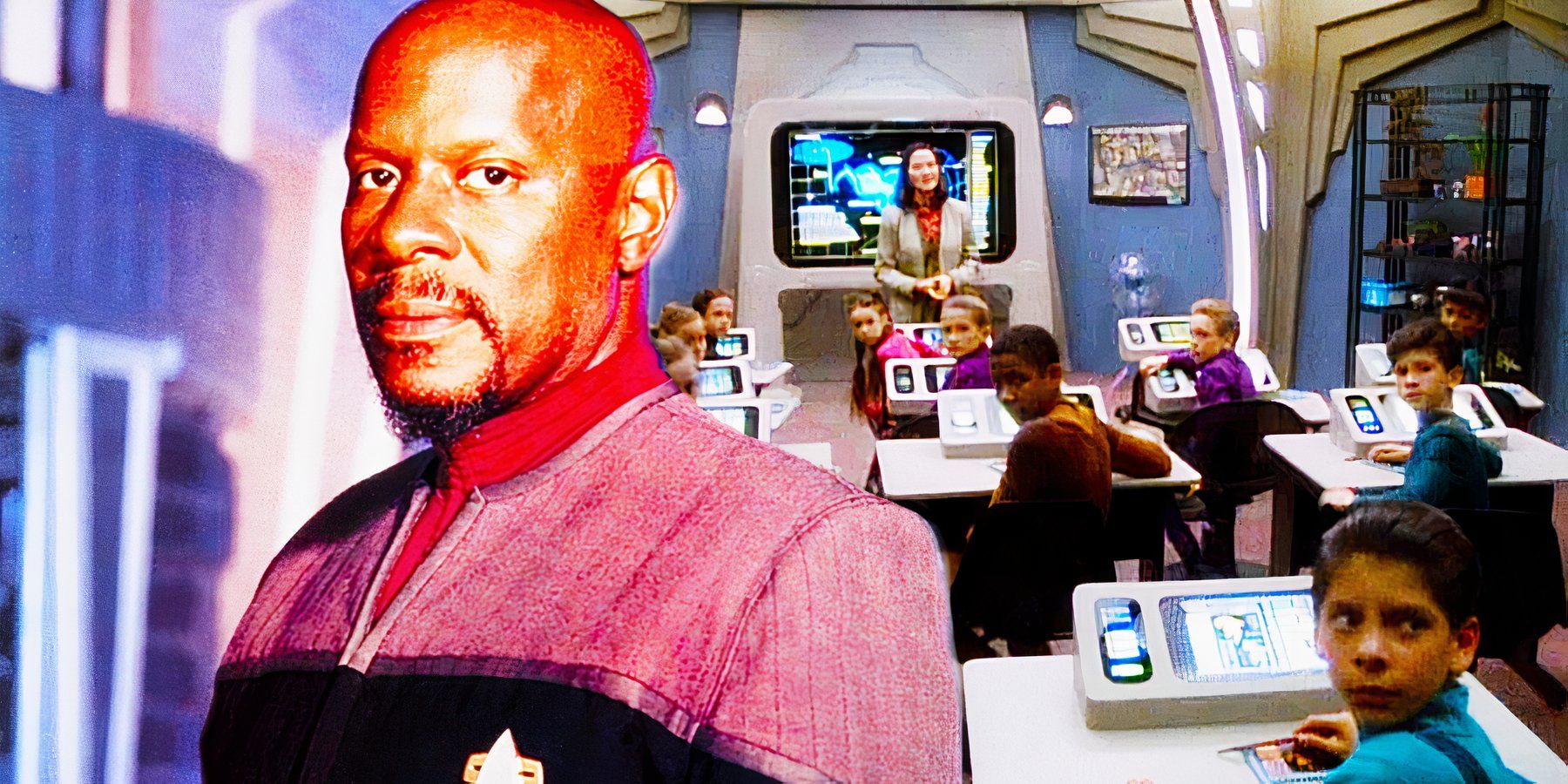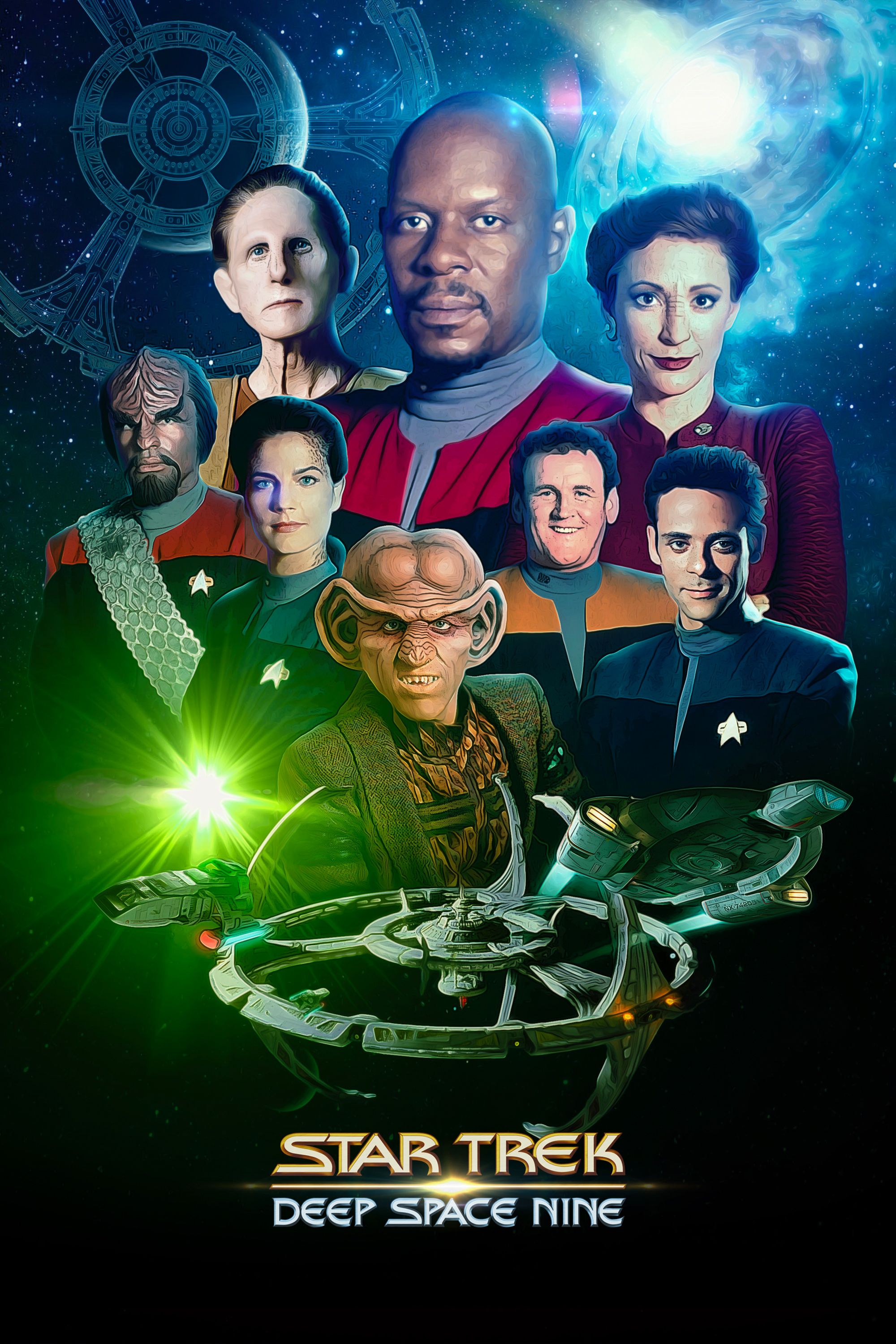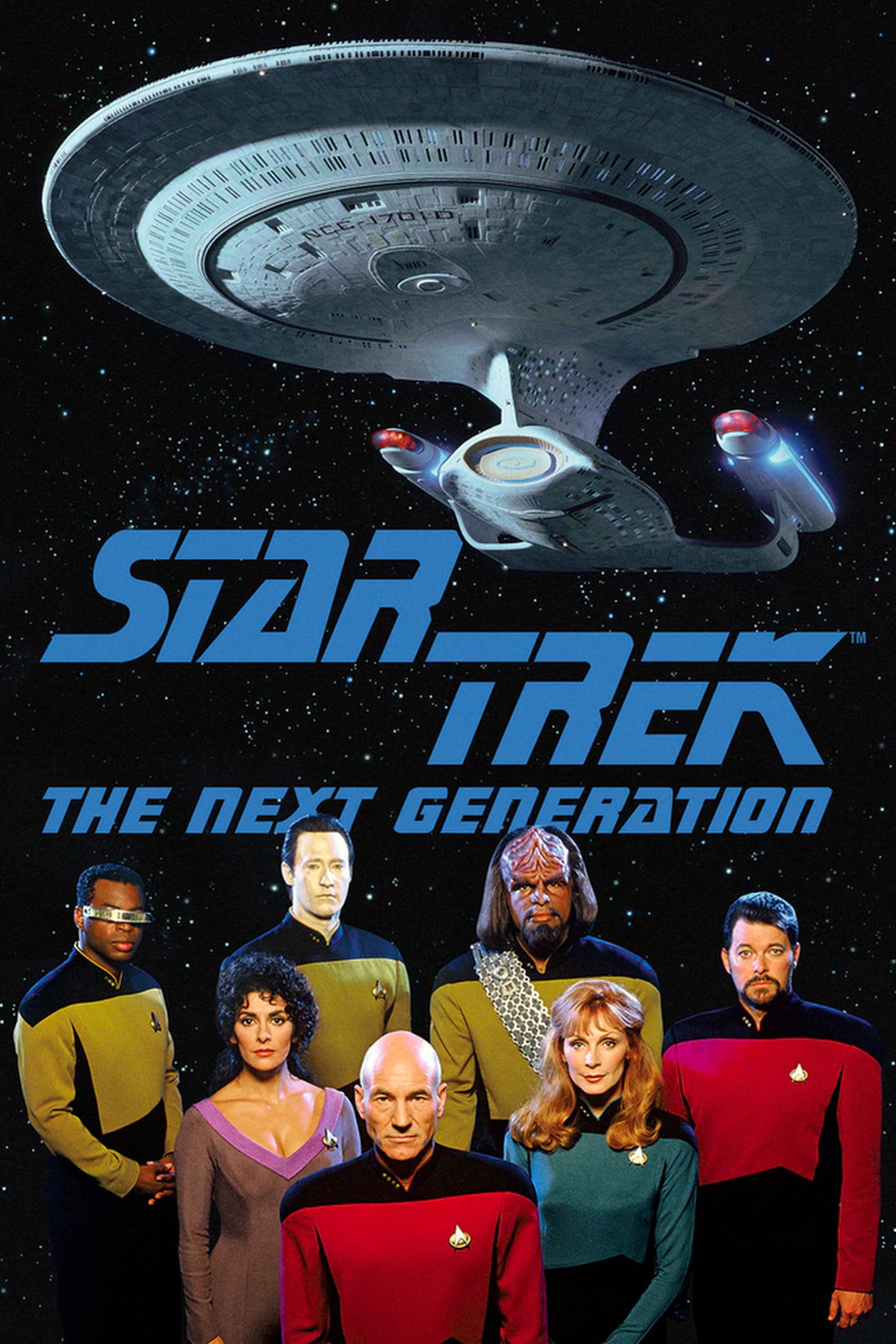
Star Trek: DS9 Did Something That Picard’s Enterprise Never Could
Summary
- Both Star Trek: DS9 and TNG’s second seasons introduced new existential threats that set up major conflicts in season 3.
- DS9 showed the effect of the Dominion threat on its civilian crew, unlike TNG that carried on with civilian families in danger.
- TNG had families aboard due to a peaceful work-life balance policy in the 24th century that DS9 highlighted the consequences of.
Star Trek: Deep Space Nine did something that Captain Jean-Luc Picard (Patrick Stewart) was unable to do on the USS Enterprise-D in Star Trek: The Next Generation. With its space station setting and combination of Starfleet and non-Federation crew members, DS9 was specifically designed to stand apart from TNG. However, for all their differences, there’s an interesting similarity between DS9 season 2 and TNG season 2. Both Star Trek TV shows‘ second seasons introduced new existential threats to the Federation, that set up major conflict in season 3.
Star Trek: The Next Generation season 2 introduced the Borg Collective, who would later attack the Federation in TNG‘s thrilling season 3 finale, “The Best of Both Worlds”. Star Trek: DS9‘s Dominion were an anti-Federation, who opposed everything that Starfleet stood for. Both of these threats proved that traditional Federation diplomacy wasn’t a viable solution, putting the crews of the USS Enterprise-D, and Deep Space Nine in the line of fire. However, while Star Trek: DS9 addressed the effect of the Dominion on its civilian crew, TNG carried on as if having a ship full of civilian families was perfectly normal during the Borg crisis.
Related
Star Trek: The Dominion War Timeline, Explained
The Dominion War was the bloodiest conflict in Star Trek history, and its complicated timeline was filled with shocking twists and turns.
Star Trek: Deep Space Nine Took Its Children Out Of Harm’s Way, Unlike Picard’s Enterprise
After Commander Benjamin Sisko (Avery Brooks) fails to reason with the Dominion in Star Trek: Deep Space Nine‘s season 3 opener, it has an immediate effect on the station’s civilian populace. In DS9 season 3, episode 3, “The House of Quark”, Keiko O’Brien (Rosalind Chao) reveals that the Dominion threat has shut the school, due to the Bajorans evacuating the station for the safety of the planet below. This is in stark contrast to how, in Star Trek: The Next Generation‘s season 3 finale, the multiple families aboard the USS Enterprise-D weren’t evacuated in the face of the Borg threat.
The closure of the school was written into
Star Trek: Deep Space Nine
to remove Keiko O’Brien from the series temporarily while the writers developed the friendship between Chief O’Brien (Alexander Siddig) and Dr. Bashir (Alexander Siddig).
Kids in Star Trek like Jake Sisko (Cirroc Lofton) or Wesley Crusher (Wil Wheaton) were regularly put at risk because they were being cared for by their single parents, who happened to be Starfleet officers. Star Trek: Deep Space Nine made this distinction clear by establishing in “The House of Quark” that the only kids left on the station were Jake, Nog (Aron Eisenberg) and Molly O’Brien (Hana Hatae). Meanwhile, Picard’s Enterprise in Star Trek: The Next Generation continued to put multiple civilian children in harm’s way through battles with the Borg and the eventual crash on Veridian III in Star Trek Generations.
Why Star Trek: TNG’s Enterprise Had To Have Kids
Captain Picard wasn’t fond of having children aboard the USS Enterprise-D, which begs the question of why Star Trek: The Next Generation had so many junior crew members. Picard’s Enterprise had families aboard thanks to TNG‘s creator, Gene Roddenberry. In Roddenberry and David Gerrold’s Star Trek: The Next Generation season 1 bible, the show’s new approach to families is explained:
As humanity probes deeper and deeper into space with ten-year or longer missions becoming the norm, Starfleet has begun encouraging crewpersons to share space exploration: adventure with their families. Twenty-fourth century humans believe that life should be lived, not postponed.
In essence, the reason that Star Trek: The Next Generation‘s Enterprise had kids aboard was because there was a better work-life balance in the peaceful 24th century. Indeed, Roddenberry and Gerrold’s bible asserts that “people need people” and having family members aboard will reduce the isolation felt by deep space explorers. However, as Star Trek: Deep Space Nine‘s pilot proved, the effects of losing a loved one during times of conflict are devastating, and a hefty price to pay for the privilege of having one’s family aboard. It’s only when the Dominion War began that Starfleet clearly began to rethink this policy.



